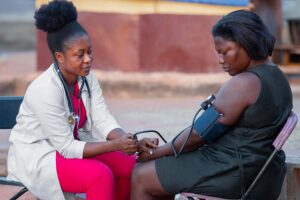When it comes to blood donation, many people are unsure about the differences between plasma donation and whole blood donation. Each donation type plays a crucial role in saving lives, but understanding the key differences will help you make the best choice for yourself and for those in need. Whether you want to donate to a blood bank, plasma center, or participate in a blood drive, this guide will walk you through the essential information you need to know.
The Basics: Plasma vs. Whole Blood Donation
Blood is a vital resource for various medical procedures, and both plasma and whole blood donations serve different purposes. Whole blood donation involves giving the entire blood sample, while plasma donation focuses on a specific component of the blood.
What is Whole Blood Donation?
Whole blood donation involves donating a pint of blood, which contains several components: red blood cells, white blood cells, plasma, and platelets. This type of donation is crucial in treating various medical conditions, such as trauma, surgery recovery, and certain diseases like anemia.
In Nigeria, whole blood is used in hospitals for surgeries, accidents, and chronic diseases. If you’re a match, your blood group (such as O positive) may be critical for patients needing blood transfusions. You don’t need to worry about your genotype or rhesus factor unless you’re donating directly to someone with specific needs.
What is Plasma Donation?
Plasma is the pale-yellow liquid portion of blood that carries water, salts, enzymes, and proteins. It makes up about 55% of blood’s volume. Unlike whole blood donation, plasma donation involves only the liquid part of your blood, while the red blood cells, white blood cells, and platelets are returned to your body.
Plasma donation is often used for producing treatments for clotting disorders like hemophilia, immune system deficiencies, and severe burns. Blood plasma is also crucial in manufacturing medications such as immunoglobulins, albumin, and clotting factors.
Benefits of Plasma Donation
Choosing plasma donation over whole blood donation can offer unique benefits, especially if you’re looking to help those with specific health issues. Plasma is vital for patients who need platelet donation or bone marrow donation support, as well as individuals going through cancer treatments.
If you’re wondering where to donate plasma in Nigeria, you can check with plasma donation centers like Oneus. These centers ensure that blood plasma is handled with the highest standards to guarantee safety and effectiveness for those in need.
The Donation Process: How it Works
Whether you’re donating whole blood or plasma, the process is relatively simple and safe. Here’s what you can expect:
Whole Blood Donation Process
-
Registration – After arriving at a blood donation website or local blood bank, you’ll fill out a short health questionnaire.
-
Screening – You’ll undergo a quick health check to ensure you’re fit to donate.
-
The Donation – A sterile needle will be inserted into your arm to collect blood for about 10-15 minutes.
-
Recovery – You’ll rest for a few minutes afterward, receiving snacks and drinks to help you recover.
Plasma Donation Process
Plasma donation involves a process known as apheresis, where blood is drawn from your body, filtered to separate the plasma, and the remaining blood components are returned to you. The entire process takes about 45-90 minutes, depending on the center.
Both donation types are safe, but plasma donation requires a longer time commitment. It’s important to be hydrated and well-rested before donating to ensure a smoother experience.
Risks and Considerations: What to Keep in Mind
While both blood donation and plasma donation are generally safe, there are some things to keep in mind before you donate:
-
Blood Donation Risks: Donating whole blood may cause dizziness or fainting in rare cases, but this is temporary. It’s recommended not to donate more frequently than once every 56 days.
-
Plasma Donation Risks: Plasma donation can lead to dehydration, which is why it’s essential to drink plenty of fluids before and after the procedure. Rare side effects may include bruising or a slight tingling sensation.
Also, some people may not be eligible to donate due to their blood group, rhesus factor, or other health conditions like an existing genotype issue. It’s always important to check with your local donation center before scheduling an appointment.
Why Donate Blood or Plasma? The Benefits
Giving blood or plasma can have numerous benefits. Apart from the life-saving nature of your donation, the act of donating has been shown to have health benefits. Studies suggest that blood donation benefits to the skin, as it can improve blood flow and help rejuvenate skin health. Furthermore, donating regularly can reduce the risk of iron overload in your body.
For those considering selling plasma or selling blood, remember that donation should be about altruism first. Many plasma centers offer compensation for donations, but the real reward comes from knowing you’re making a difference in someone’s life.
Take Action: Give Blood, Save a Life
There’s always a demand for blood, especially in emergencies or during surgeries. In Nigeria, the need for both whole blood and plasma donations is urgent, and many people are waiting for your help. At Oneus, we are committed to making the blood donation process seamless, safe, and accessible for everyone.
Give Blood, Save a Life – Book Your Donation Now!
Contact us at info@oneusng.com or call +234 902 168 2822 to schedule your donation today. You can also visit our website Oneus Nigeria for more information.
Don’t wait – your donation could be the difference between life and death for someone in need.




